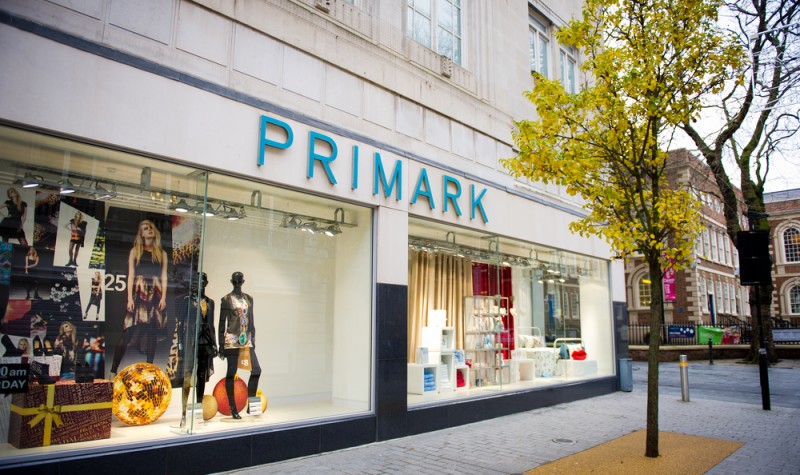Is ABF the answer to Brexit woes?

For most investors, it’s been a case of ‘so far, so good’ since the EU referendum. The only real impact of the result to leave the EU has been a weaker pound, which has benefited exporters and put pressure on importers. However, Brexit has not yet begun. Things could therefore get much, much worse for the pound, the UK economy and for risk-on investors.
That’s why defensive stocks such as ABF (LON:ABF) may gain in popularity in 2017. Its biggest division, Primark, could benefit from a squeeze on disposable incomes. This could cause shoppers to trade down to its budget offering. Similarly, ABF may be a net gainer from a further weakening of sterling, while its diverse business model may hold appeal for increasingly risk averse investors. In my view, ABF will outperform the main index in 2017 and could be an answer to Brexit woes.
Primark
Primark accounts for 44% of ABF’s sales and has the potential to be a beneficiary of Brexit. Weaker sterling has made imports more expensive and this is forecast to cause a rise in inflation over the next couple of years. According to the Bank of England, inflation is expected to hit 2.7% in 2017. This is likely to squeeze disposable incomes since there is a good chance that inflation will exceed wage increases over the short to medium term. Therefore, UK shoppers could trade down to budget retailers such as Primark, which would clearly be good news for ABF.
This situation has already occurred to an extent in 2016, during which time the effects of Brexit have not yet been felt. Primark has been able to increase its market share in all of the countries in which it operates, and delivered a 9% rise in sales at constant currency in financial year 2016. At the same time, its rivals have seen market value declines in most countries in Europe during the course of the year. This situation could be exacerbated in 2017 as Brexit is likely to hurt the economic performance of EU countries as well as the UK.
Currency swings
On the face of it, ABF should benefit from weaker sterling. It is an international business which reports in sterling, so it should gain a boost from the pound’s recent depreciation. However, it is not quite so simple, since Primark buys much of its merchandise in US dollars and sells in the UK and Europe in sterling and euros respectively. Therefore, the stronger dollar will cause Primark’s margins to contract. It will also mean that ABF’s non-sterling denominated debt will increase in value, other things being equal.
However, a weaker pound will also benefit ABF. A strong euro versus the pound aids its British Sugar division, while Primark’s sales will be boosted by weaker sterling. For example, in the 2016 financial year weaker sterling added 2% to Primark’s sales (11% versus 9% at constant currency) and this trend is likely to continue as sterling remains weak. Forex gains added a net £5 million to ABF’s adjusted operating profit in financial year 2016, so while it is not a case of weak sterling simply being a good thing for the company, ABF should nevertheless be a net beneficiary from further depreciation in the value of the pound.
In my view, 2017 will see the pound weaken even further. The Federal Reserve is highly likely to raise interest rates in December and is forecast to continue to adopt an increasingly hawkish stance, with the market anticipating an interest rate of 2.25% by 2020. In contrast, the Bank of England is expected to keep rates at 1.25% or below between now and then, with inflation of 2.7% unlikely to be severe enough to warrant a higher rate given the risk to UK economic growth from Brexit.
Risk-off transition
As mentioned, Brexit has not had a significant impact on the UK, EU or global economies. However, the process has not yet begun. In my view, it could cause investors to become increasingly uncertain and risk-off in 2017. ABF may not offer the highest EPS growth in the index, but it is a relatively well-diversified business in both a geographical and business sense.
For example, ABF operates across Europe, the Americas, Asia and southern Africa. Similarly, Primark may be its main division, but its grocery division contributed almost 25% of group sales in financial year 2016. The Grocery division enjoys relatively high levels of customer loyalty as well as growth potential from emerging markets. ABF’s other product categories and segments mean that it has lower positive correlation with the wider index. This could increase its risk-off appeal among what I feel will be a more nervous outlook in 2017, due in part to the effects of Brexit and the possibility of contagion.
Valuation
ABF’s P/E ratio of 24.2 may not indicate that it offers good value for money. However, ABF is forecast to report a rise in EPS of 11% in the 2017 financial year. Therefore, it has a forward P/E of 21.7 which could easily fall below 20 if the company’s Primark expansion and other divisions continue to perform relatively well. So while ABF is by no means a bargain, it does offer fair value for money at this moment in time.
Further, ABF has the potential to be the right stock at the right time in 2017. Primark could benefit from a squeeze on disposable incomes in the UK and across Europe, with shoppers likely to trade down to budget stores in times of difficulty. ABF has a well-diversified business model, with its wide-ranging geographical exposure helping to reduce risk. It also has the potential to be a net beneficiary from weaker sterling, which could be a worthwhile play ahead of an uncertain year. Therefore in my opinion, ABF could prove to be an answer to Brexit woes.
Comments (0)